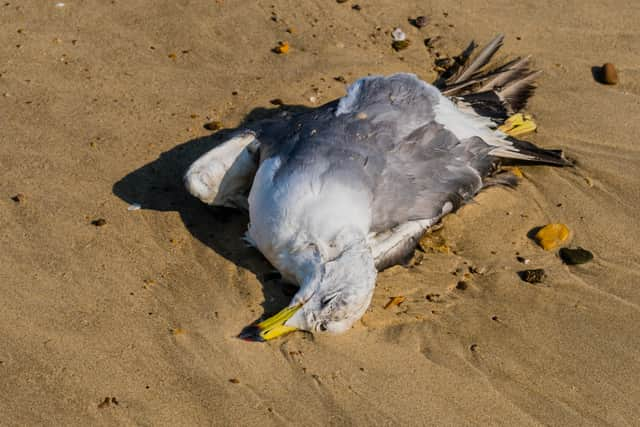Warning issued after dead birds wash up on Merseyside coast
and live on Freeview channel 276
A warning has been issued for visitors to Sefton’s coast after dead birds were found washing ashore. Sefton Council said it is waiting for confirmation from the Department of Environment, Food and Rural Affairs (DEFRA) over the causes of death of the birds, but states it is suspected the birds may have succumbed to avian flu.
A council spokesperson said it is working with DEFRA ‘to ensure all cases are reported and the dead birds are dealt with safely’. The council has also issued a warning to visitors to the Sefton coast, which stretches from Southport to Crosby, listing guidelines that need to be followed.
- Do not pick up or touch dead or sick wild birds and do not touch bird feathers or surfaces contaminated with wild bird droppings.
- Dog walkers need to keep pets on leads and avoid walking along the tideline with their dogs, as well as avoiding them coming into contact with wild birds.
- People who keep poultry and other birds are advised to wash hands as well as cleaning disinfecting footwear before coming into contact with their birds.


Advertisement
Hide AdAdvertisement
Hide AdBird flu symptoms: The government’s website about avian or bird flu lists signs of the most serious forms of the disease in bird populations, with symptoms including sudden death, swollen head, closed and runny eyes, lethargy and depression, lying down and unresponsiveness, lack of coordination, lethargy and eating less than normal.
Other signs include head and body shaking, drooping wings, dragging legs, twisting of the head and neck as well as possible swelling and discolouration and redness on the legs and under the neck as well as breathing difficulties including sneezing, gurgling and rattling.
Human infection: According to the UK Health Security Agency there have been only ‘sporadic’ cases of infections of currently prevalent bird flu strains in humans with evidence suggesting the virus ‘does not spread easily to people’ – although people should take care not to touch birds suspected to be infected with the disease.
Sightings: Visitors to the coastline are encouraged to report any dead or sick birds found along the shore to DEFRA using its designated webpage www.gov.uk/guidance/report-dead-birds or by calling the helpline at 03459 335577.